Abstract
Clinical trial protocols include detailed temporal constraints on treatment and associated tasks. Unlike health-care guidelines, protocols are highly prescriptive. Therefore, informatics applications that enforce such temporal constraints are more directly useful with protocols than with guidelines. Although there are some temporal knowledge representation efforts for health-care guidelines, we find these to be insufficiently expressive for clinical trial protocols. In this paper, we focus on temporal knowledge representation for clinical trial protocols and the task of patient-specific scheduling in protocols. We define a temporal ontology, use it to encode clinical trial protocols, and describe a prototype tool to carry out patient-specific scheduling for the tasks in protocols. We predict that an expressive temporal knowledge representation can support a number of scheduling and management tasks for protocol-based care.
Full text
PDF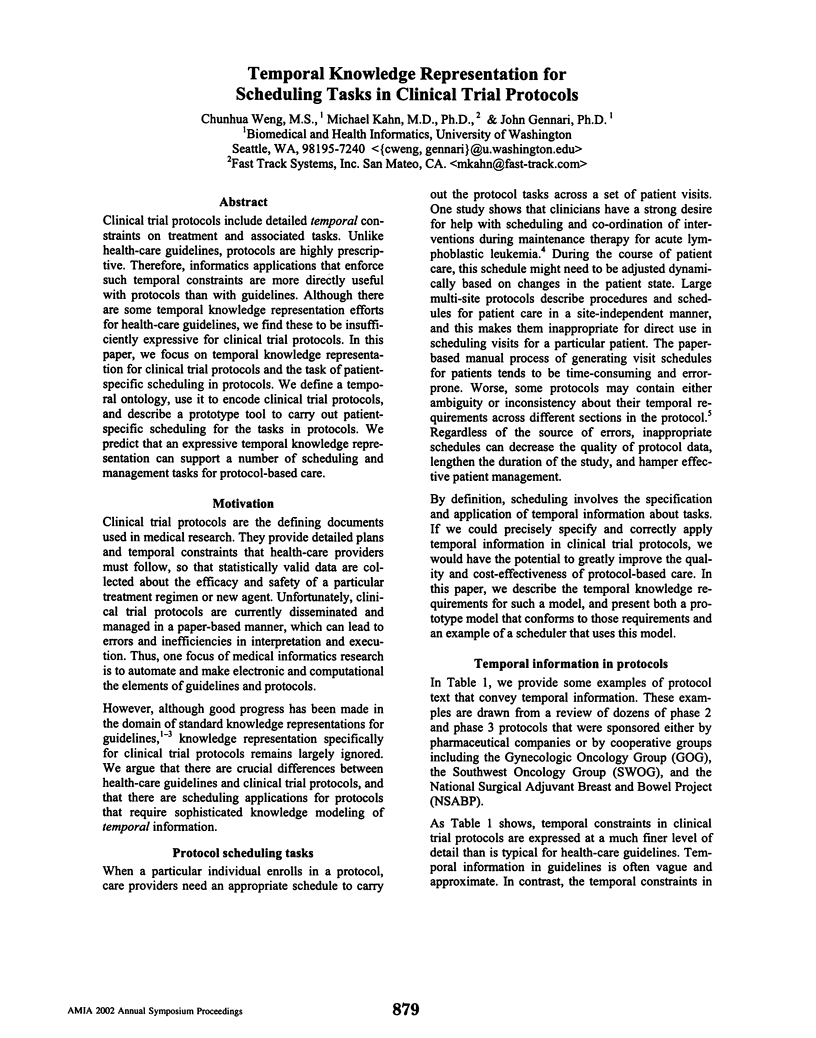
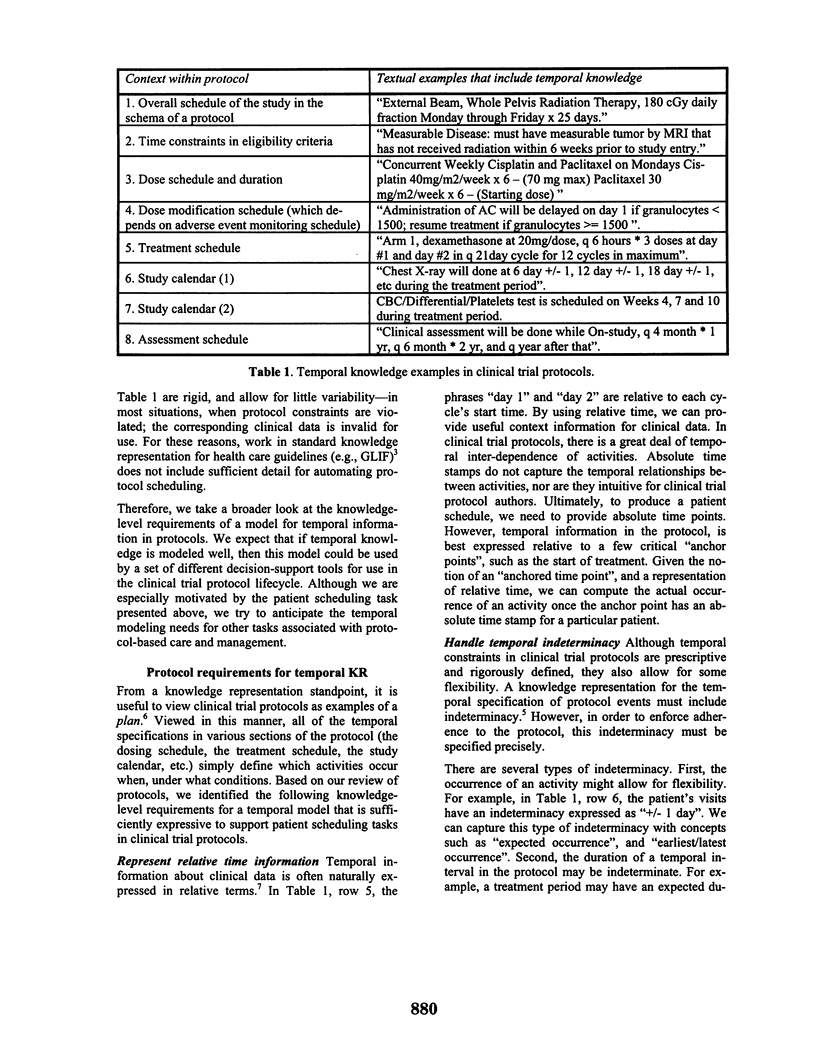
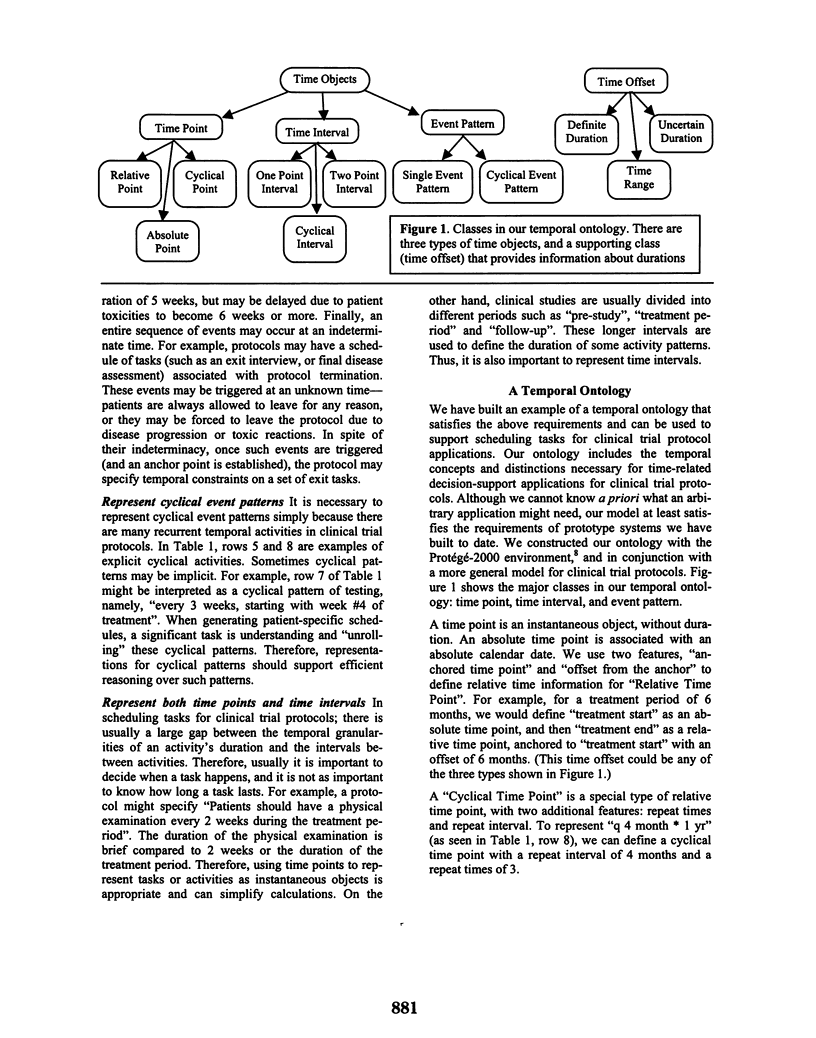
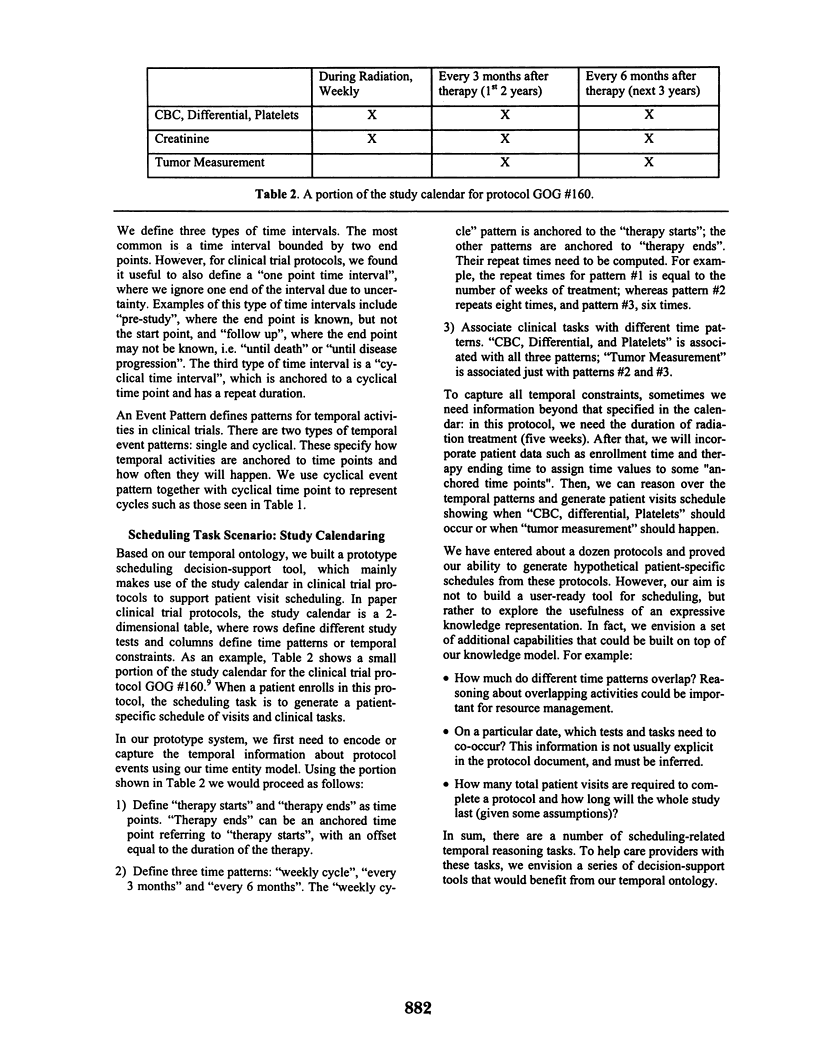
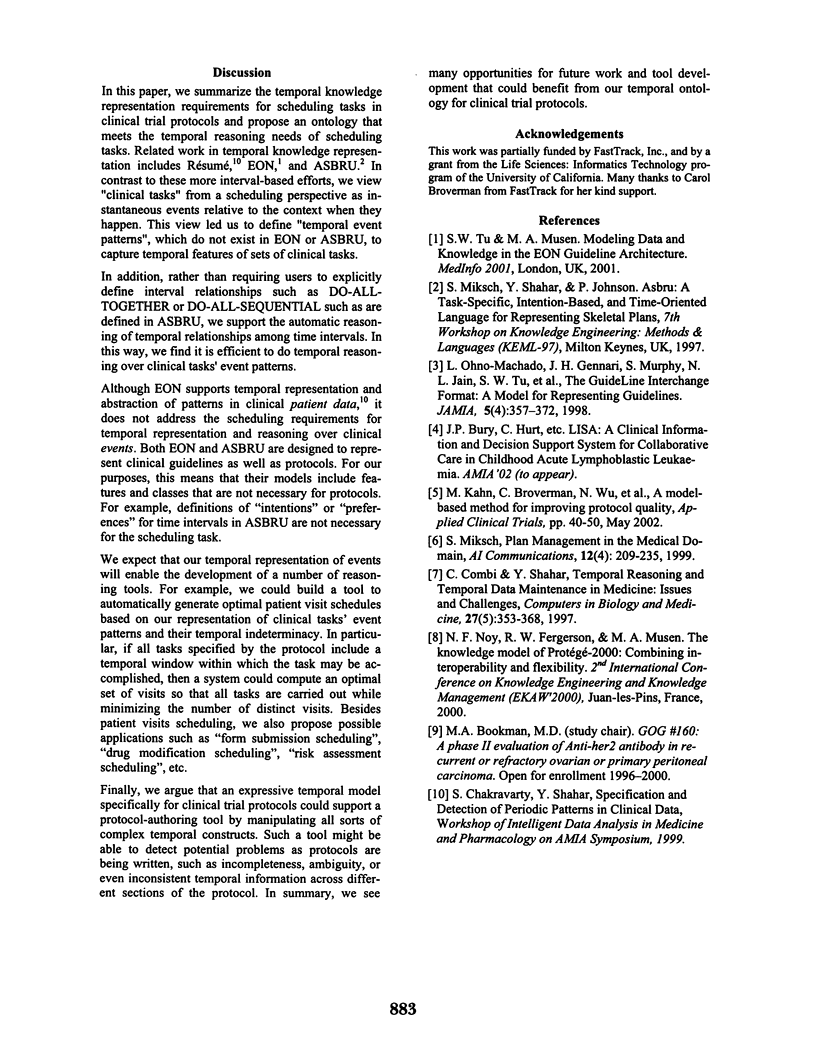
Selected References
These references are in PubMed. This may not be the complete list of references from this article.
- Combi C., Shahar Y. Temporal reasoning and temporal data maintenance in medicine: issues and challenges. Comput Biol Med. 1997 Sep;27(5):353–368. doi: 10.1016/s0010-4825(96)00010-8. [DOI] [PubMed] [Google Scholar]
- Ohno-Machado L., Gennari J. H., Murphy S. N., Jain N. L., Tu S. W., Oliver D. E., Pattison-Gordon E., Greenes R. A., Shortliffe E. H., Barnett G. O. The guideline interchange format: a model for representing guidelines. J Am Med Inform Assoc. 1998 Jul-Aug;5(4):357–372. doi: 10.1136/jamia.1998.0050357. [DOI] [PMC free article] [PubMed] [Google Scholar]


